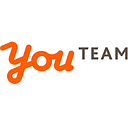7 Best Practices for Effective Knowledge Transfer in Software Development Teams
Software development teams have a unique ecosystem, relying on coordination and knowledge transfer among members. It becomes crucial when incorporating new engineers, whether contractors or in-house developers. Implementing a structured knowledge transfer process consolidates employees’ knowledge into a central company knowledge base, promoting decentralized teamwork and facilitating access to information for new and existing team members.
This article highlights the following:
- The two types of knowledge and their influence on the development process
- The effectiveness of creating self-sufficient teams over a strictly defined learning and knowledge-sharing process, especially for rapidly growing companies.

The Difference Between Tacit and Explicit Knowledge
Tacit knowledge refers to the expertise, industry insights, and business acumen employees accumulate through their experiences and work. This knowledge is primarily shared through direct individual interactions, such as pair programming sessions or one-on-one meetings.
In contrast, explicit knowledge is information documented, digitized, and made easily accessible to all employees. It includes documents, spreadsheets, reports, coding standards, and other tangible resources. Explicit knowledge can be accessed and utilized asynchronously by team members.
The choice of knowledge management strategy in software engineering depends on the development methodology employed. Agile development, for instance, heavily relies on tacit knowledge, as it is challenging to transfer such knowledge effectively through written documents or visual aids. On the other hand, plan-driven development places greater emphasis on explicit knowledge, as the approach of capturing knowledge in documents aligns well with this methodology.
Effective Knowledge Transfer Methods and Techniques for Software Developers
Assigning a Mentor
Assigning a personal mentor for new developers facilitates faster learning and establishes a personal connection within the team.
Mentors should be experienced senior developers who can motivate and guide others.
Pair Programming Sessions
Pair programming involves two engineers working together on the same workstation.
In-office teams share one computer and keyboard, while remote teams use screen sharing tools or shared terminal environments.
Pair programming allows new hires to work on real problems with experienced developers, gaining valuable knowledge through hands-on experience.
Code Reviews
Code reviews facilitate discussions about the code base and uncover hidden knowledge.
Existing engineers mentor new team members, while the review process offers opportunities for fresh perspectives and identifying improvements.
Code reviews also help decentralize knowledge within the team, ensuring smooth workflow continuity.
One-on-One Meetings
Team leaders conduct one-on-one meetings to set expectations, introduce company culture, and assess the onboarding and knowledge-sharing process.
These meetings provide a platform for new hires to clarify doubts and ensure a smooth knowledge transfer.
Documentation
Documentation helps users understand software features and functions.
Process documentation includes test standards, project plans, and meeting records, while product documentation describes the software being developed.
Visual content, such as illustrations and flowcharts, should be included to cater to visual learners.
Code Comments
Comments in the code should explain the programmer’s intent and clarify complex optimizations or constructs.
They should avoid duplicating code and focus on dispelling confusion or providing additional context.
Comments are valuable when fixing bugs or marking incomplete implementations.
Online Tutorials with Exercises
Custom-designed exercises familiarize newcomers with infrastructure and best practices.
Large enterprises often provide guided coding experiences like Google’s Codelabs for hands-on learning.
Software developers can enhance their learning, collaboration, and overall productivity by implementing these effective knowledge transfer methods and techniques.
Final Thoughts
In conclusion, software developers need effective knowledge transfer methods and techniques to ensure efficient onboarding, continuous learning, and successful teamwork. These practices promote faster learning, smoother workflow continuity, and the decentralization of knowledge within development teams.
Embracing these approaches not only accelerates the growth and proficiency of individual developers but also contributes to the overall success of software projects and the organization’s long-term sustainability.
